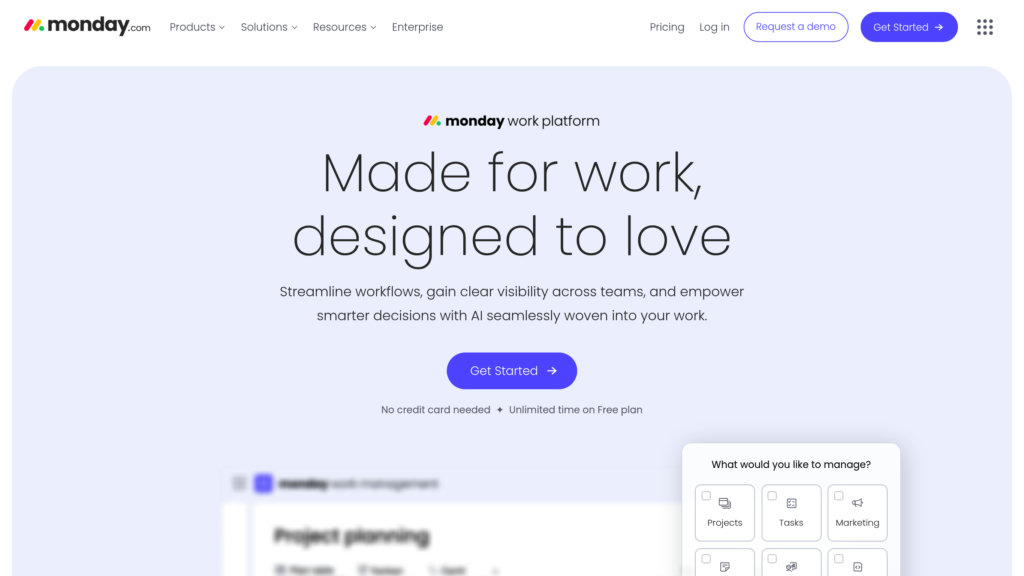monday.com
Customizable work management platform for team collaboration and project tracking
Introduction
What is monday.com?
monday.com serves as a flexible Work Operating System (Work OS) that gives teams the power to create, tailor, and enhance workflows specific to their operational requirements. It combines task management, customer relationship management, software development, and service operations into one unified platform, promoting smooth teamwork and efficiency. The system provides ready-made comprehensive solutions for particular applications, while ensuring complete adaptability and interconnection among all components, making it ideal for diverse business sectors and scales.
Key Features:
• Tailored Workflow Solutions: Enables teams to construct and automate workflows for any project or process using intuitive no-code components.
• Industry-Specific Applications: Delivers out-of-the-box tools for CRM, software development, project oversight, and service management that are fully adjustable.
• Effective Team Collaboration: Supports document sharing, conversations, and live notifications within workspaces to maintain team synchronization and output.
• Comprehensive Analytics and Reporting: Features adaptable dashboards with visual graphs, pivot analysis, and capacity monitoring to guide strategic choices.
• Broad Connectivity and Automated Processes: Works with common applications such as Slack, Google Drive, and Microsoft Excel, alongside robotic automation to minimize manual work.
• Advanced Security Protocols: Incorporates data protection (AES-256, TLS 1.3), multi-factor verification, and adherence to regulations including ISO 27001, GDPR, and HIPAA.
Use Cases:
• Project and Task Oversight: Handle numerous projects and assignments with adaptable displays like Kanban, calendar, and timeline to monitor advancement and timeframes.
• Customer Relationship Management: Consolidate sales channels, client information, and interactions to increase sales effectiveness and customer relationships.
• Software Development Lifecycle: Organize agile sprints, product launches, task queues, and development plans with specialized tools that link technical teams with other units.
• Marketing Initiative Coordination: Develop, allocate resources, and oversee promotional activities and content schedules to improve lead acquisition and returns.
• Service and Support Management: Process service tickets, inter-departmental procedures, and client assistance with automated and AI-supported systems.
• Distributed Team Coordination: Unify communication, documents, and processes to ensure remote teams remain coordinated and effective irrespective of geography.
